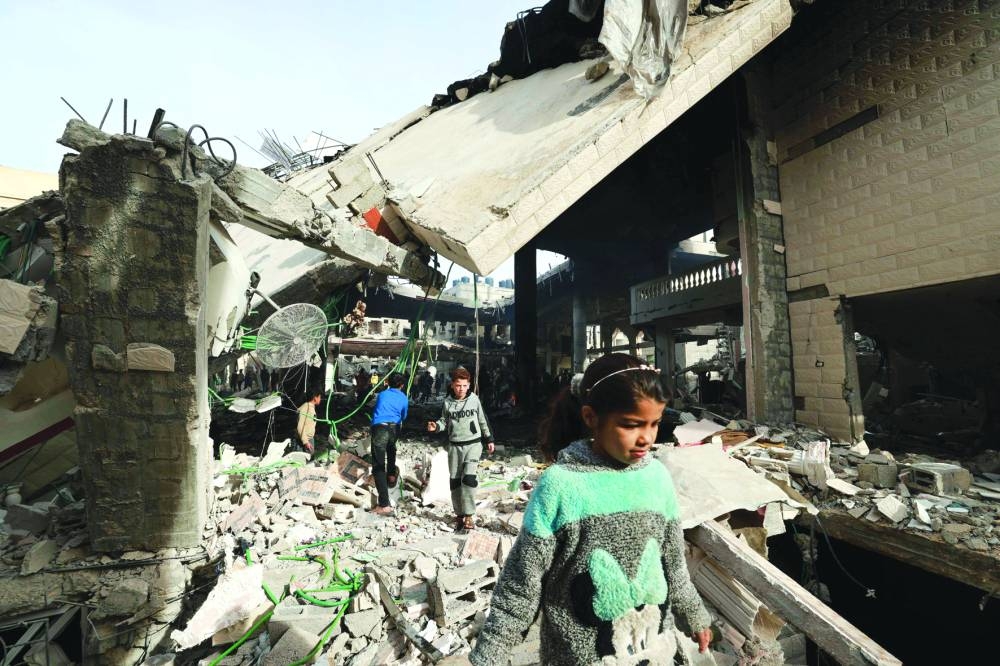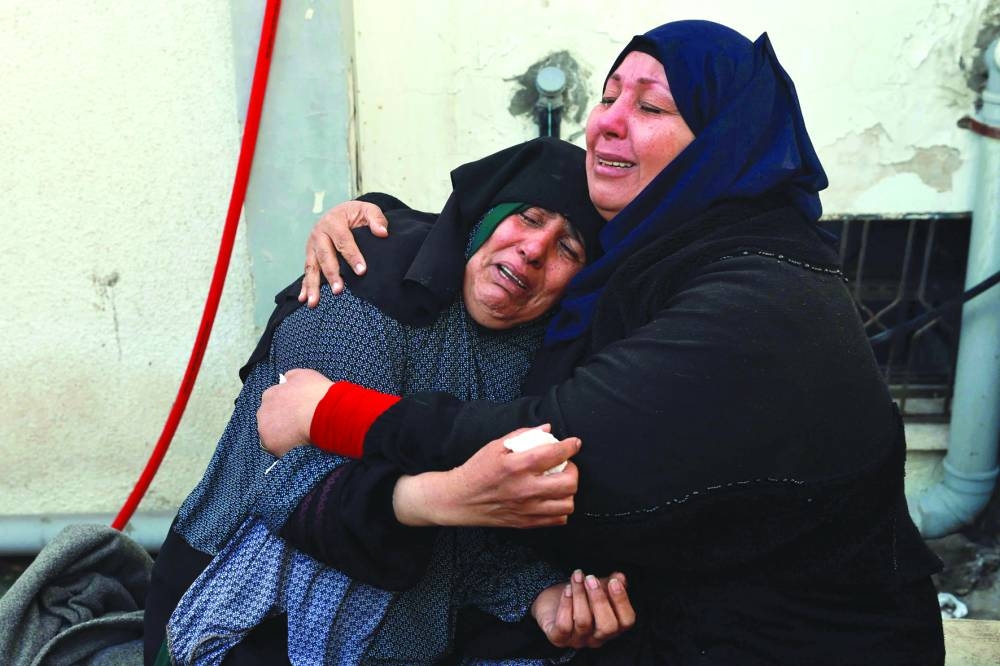The UN said yesterday the prospect of a full Israeli incursion into the crammed Gaza town of Rafah was “terrifying” and risked an “extremely high” number of casualties.
UN human rights chief Volker Turk urged world powers to “restrain rather than enable” as fears of a looming ground incursion grew among more than 1mn Palestinians trapped in the territory’s far south.
Israeli Prime Minister Benjamin Netanyahu has vowed to send ground troops into the crowded Rafah area as part of his goal of eliminating Hamas.
His declarations have sparked international alarm.
“A potential full-fledged military incursion into Rafah — where some 1.5mn Palestinians are packed against the Egyptian border with nowhere further to flee — is terrifying, given the prospect that an extremely high number of civilians, again mostly children and women, will likely be killed and injured,” Turk said in a statement.
“Sadly, given the carnage wrought so far in Gaza it is wholly imaginable what would lie ahead in Rafah.
“Beyond the pain and suffering of the bombs and bullets, this incursion into Rafah may also mean the end of the meagre humanitarian aid that has been entering and distributed with huge implications for all of Gaza, including the hundreds of thousands at grave risk of starvation and famine in the north.”
The Gaza war broke out after Hamas launched an unprecedented storming of Israel in the first week of October.
Israel has responded with a relentless offensive in Gaza that the Hamas-run health ministry says has killed at least 28,340 people, mostly women and children.
“My office has repeatedly warned against actions that violate the laws of war. The prospect of such an operation into Rafah, as circumstances stand, risks further atrocity crimes,” said Turk.
He said those who defy international law had been put on notice and accountability must follow.
“The world must not allow this to happen,” Turk said.
“Those with influence must restrain rather than enable. There must be an immediate ceasefire. All remaining hostages must be released. And there must be renewed collective resolve to reach a political solution.”
FAMINE-LIKE CONDITIONS
The population of the Gaza Strip is suffering “unprecedented” levels of “near famine-like conditions” as the Israel-Hamas war drags on, the UN’s agriculture agency said yesterday, AFP reported from Rome.
Some 550,000 people are now likely facing catastrophic food insecurity levels, while the whole population is in crisis mode, the UN’s Food and Agriculture Organisation (FAO) said.
“There are unprecedented levels of acute food insecurity, hunger, and near famine-like conditions in Gaza,” FAO Deputy Director General Beth Bechdol said in an interview published by the Rome-based agency. “We are seeing more and more people essentially on the brink of and moving into famine-like conditions every day,” she said.
All 2.2mn people in Gaza are in the top three hunger categories, from level three, which is considered an emergency, to level five, or catastrophe, she said.
The Integrated Food Security Phase Classification (IPC) rates hunger levels from one to five.
“At this stage, probably about 25% of that 2.2mn are in that top-level IPC five category,” Bechdol said.
Rafah, on Gaza’s southern border with Egypt, has become a last refuge for fleeing civilians.
Many are sleeping outside in tents and makeshift shelters amid mounting concern about lack of food, water and sanitation during an Israeli siege.
Before the conflict, the people of Gaza had “a self-sustaining fruit and vegetable production sector, populated with greenhouses, while there was also a robust backyard small-scale livestock production sector,” Bechdol said.
“We’ve recognised from our damage assessments that most of these animal inventories, but also the infrastructure that is needed for that kind of speciality crop production, are virtually destroyed,” she said.

People inspect the damage in the rubble of a mosque following Israeli bombardment, in Rafah, on the southern Gaza Strip, yesterday.

Women mourn loved ones killed during Israeli bombardment at Al-Najar hospital in Rafah, on the southern Gaza Strip, yesterday.
